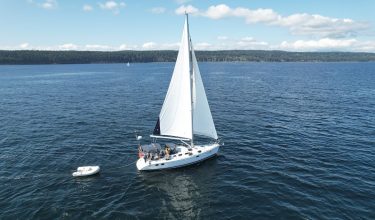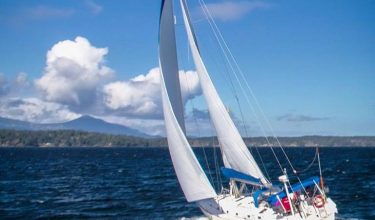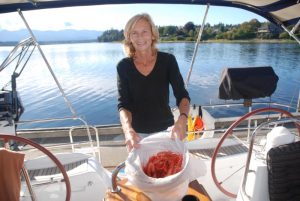
If you are an experienced sailor then you may already know these nuggets of information. Cooking on board can be great fun or if after 4 days afloat you are still eating canned soup and sandwiches then you may want to think about being more inventive. Whatever the holiday, normally food is an important aspect. If you are staying close to port then people often eat ashore, but if you want to enjoy the seclusion and majesty of parts of our recommended itineraries then you will need to plan and shop ahead.
On board cooking tips
- Do an inventory
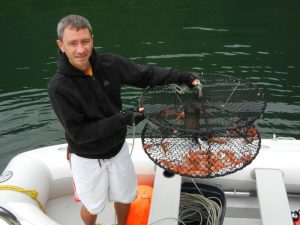
Have a good look through the kitchen area and work out what equipment you have and more importantly if there is any essential equipment you are missing. If there are dishes you’d like to cook
which require unusual ingredients such as particular spices it is worthwhile bringing them with you.
- Plan out the main meals
Lunches can be easy – fresh bread, cheese, ham and some salad and hey presto lunch is done. Snacks are also easy – crisps, crackers, fruit and some local biscuits make for a good snack cupboard. Evening meals though need to be well planned – the less shopping journeys and waste the better.As part of the planning you need to take into account everyone’s needs on board, especially if you have a crew. Find out if there are any allergies to take account of or any particularly strong dislikes.
- Plan out the alcohol
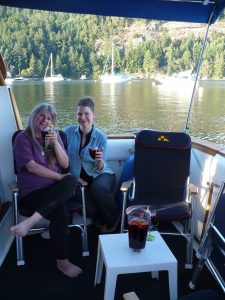 For most people part of being on holiday is relaxing with some great wine and a few beers. Keep enough on board to be merry, but remember a completely liquid diet is not recommended. Boxes of wine and cans are easier to store than bottles.
For most people part of being on holiday is relaxing with some great wine and a few beers. Keep enough on board to be merry, but remember a completely liquid diet is not recommended. Boxes of wine and cans are easier to store than bottles.
- Put 1 person in charge of cooking
Of course this doesn’t mean the rest of the crew can’t be willing helpers. Cooking can be a great family activity but you need 1 person to take control of the menu planning and shopping. Anyone doing the cooking shouldn’t have to clear up too!
- Safety and space
The galley area of the boat is bound to be restricted in size. Think carefully when you’re shopping how you are going to store everything and only take on board what you really need. It is especially important on board to clear any spills as you go and make sure everything is carefully stowed away.
- Think about rubbish/garbageAnything you normally put in a compost bin can be thrown into the sea. The less packaging you can bring on board the less there is to store for throwing away when you are next in port. We must keep the seas clean and a lot of rubbish can be very harmful to wildlife.
Meals to cook on board
Have a think about these:
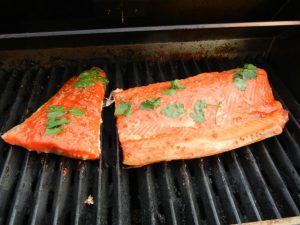
One pot wonders
Such as a stew, fajitas, soup, stir fry, Risotto.- Pastas
Bolognaise, carbonara, pesto, and various pasta bakes. - Rice dishes
Chilli, curry, paella - Salads
You can make some great salads out of canned mixed beans and packets of quinoa - Fish
Whatever you can catch alongside a salad or some vegetables
Make the cooking as well as the eating part of your holiday. Enjoy!


